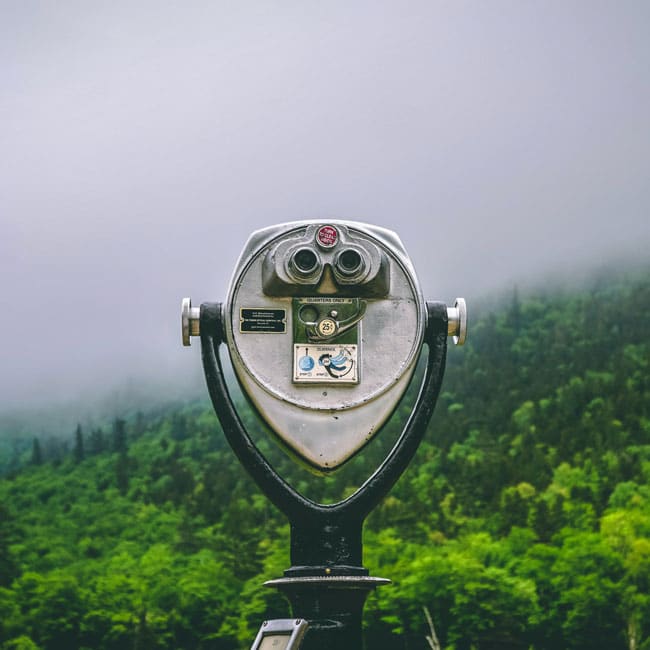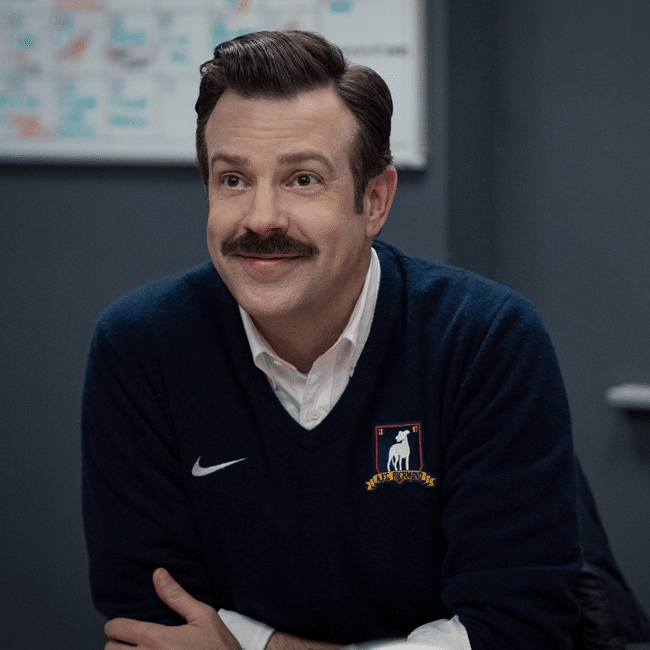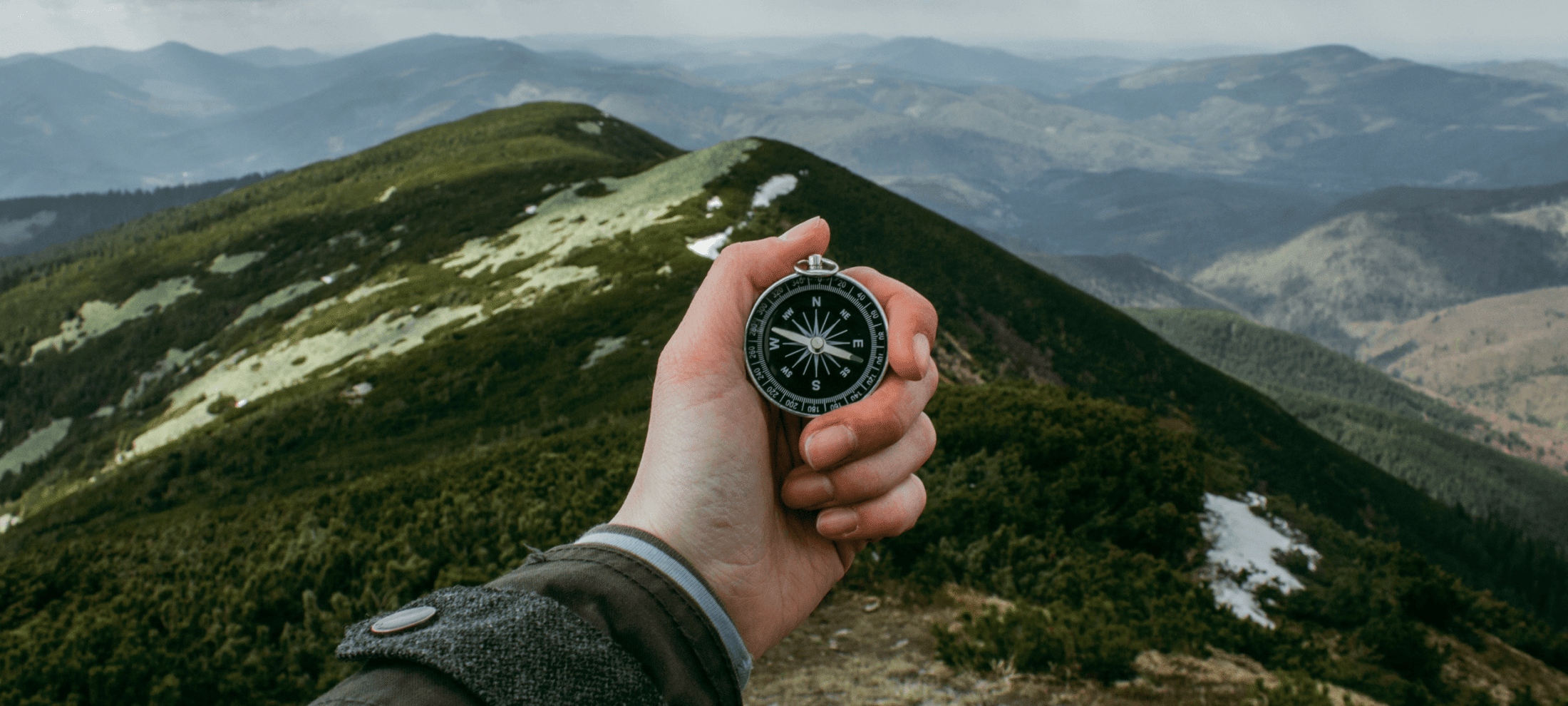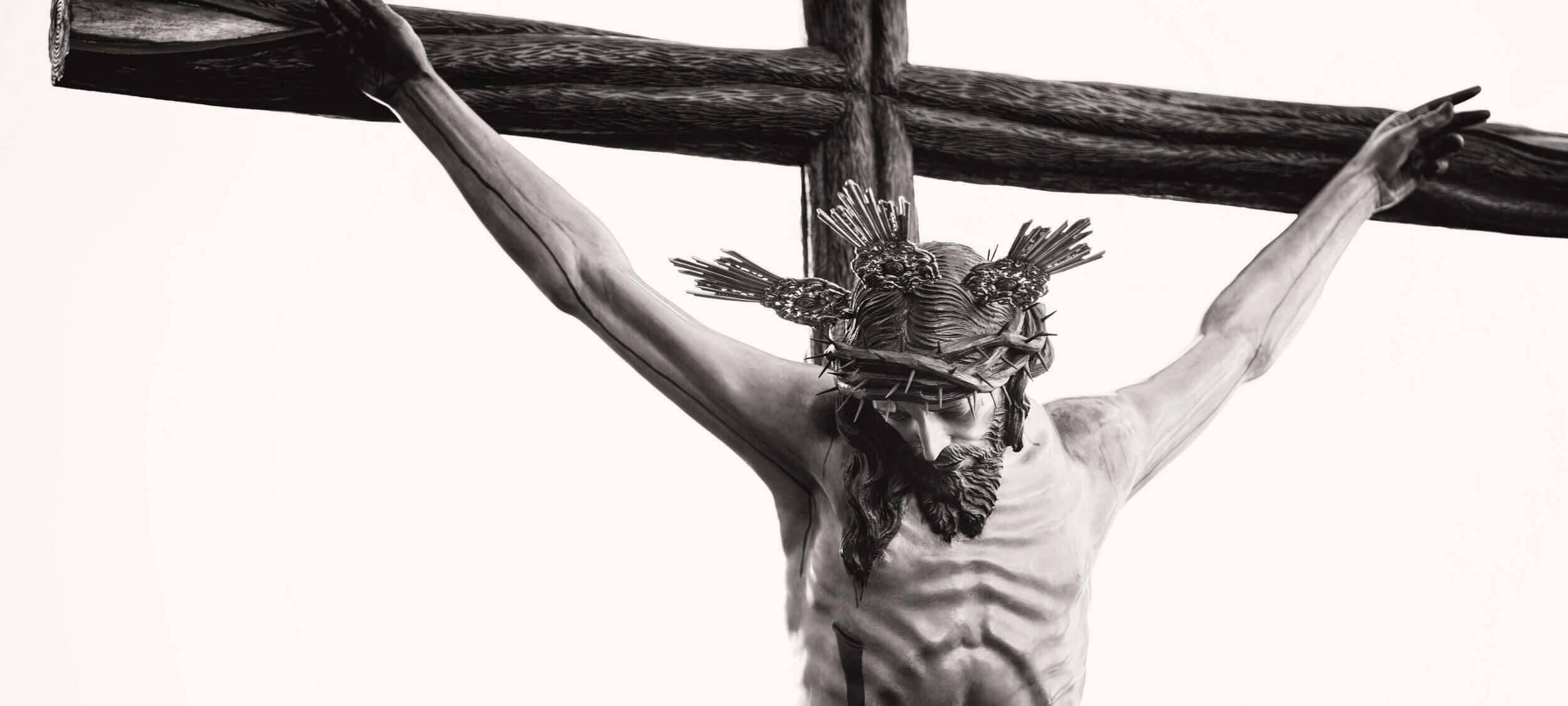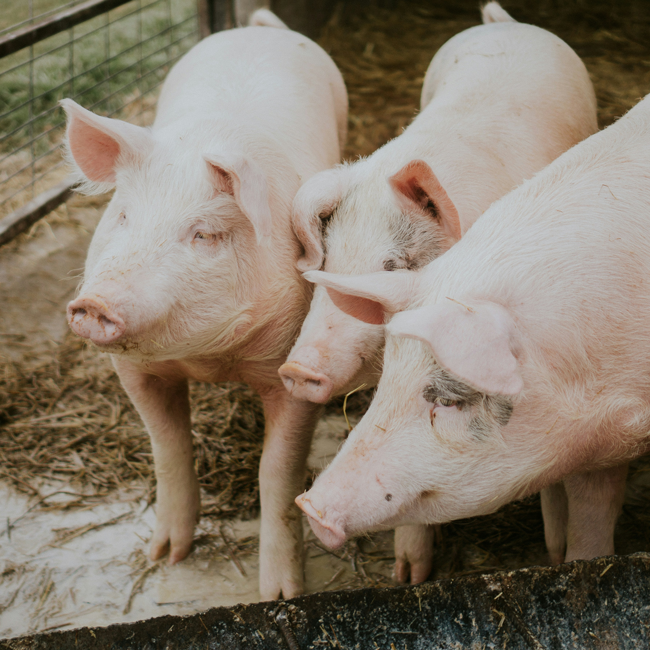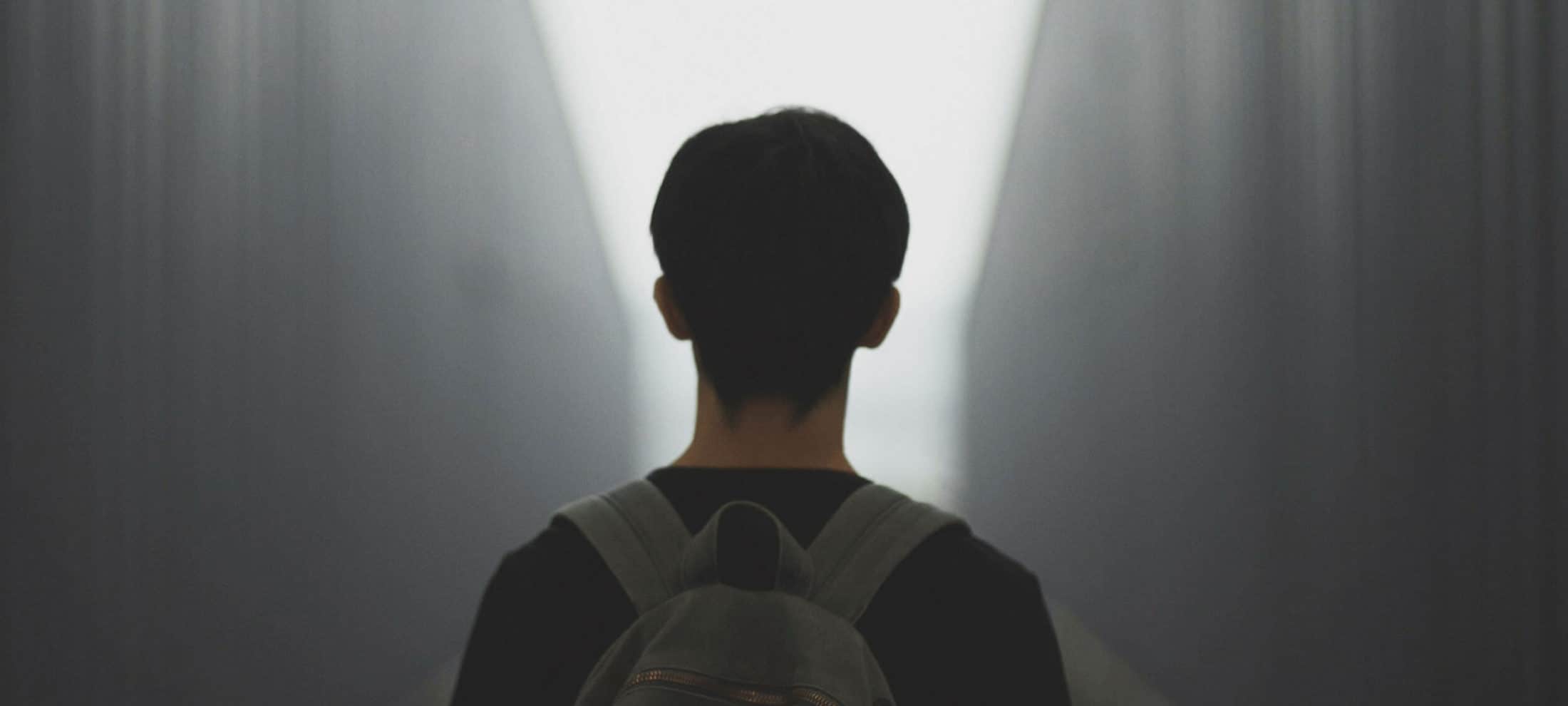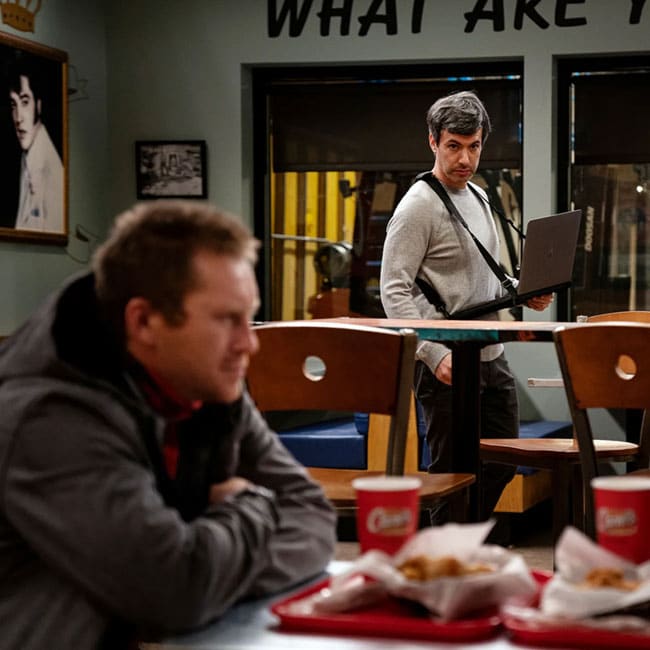Thought Experiment: The famous violinist

Thought Experiment: The famous violinist
ExplainerPolitics + Human Rights
BY The Ethics Centre 23 JUL 2021
Imagine waking up in a bed, disoriented, bleary-eyed and confused.
You can’t remember how you got to there, and the bed you’re in doesn’t feel familiar. As you start to get a sense of your surroundings, you notice a bunch of medical equipment around. You notice plugs and tubes coming out of your body and realise you’re back-to-back with another person.
A glimpse in the mirror tells you the person you’re attached to is a world-famous violinist – one with a fatal kidney ailment. And now, you start to realise what’s happened. Last night, you were invited to be the guest of honour at an event hosted by the Society of Music Lovers. During the event, they told you about this violinist – whose prodigious talent would be taken from the world too soon if they couldn’t find a way to fix him.
It looks like, based on the medical records strewn around the room, the Society of Music Lovers have been scouring the globe for someone whose blood type and genetic markers are a match with the violinist.
A doctor enters the room, looking distressed. She informs you that the Society of Music Lovers drugged and kidnapped you, and had your circulatory system hooked you up to the violinist. That way, your healthy kidney can extract the poisons from the blood and the violinist will be cured – and you’ll be completely healthy at the end of the process. Unfortunately, the procedure is going to take approximately 40 weeks to complete.
“Look, we’re sorry the Society of Music Lovers did this to you–we would never have permitted it if we had known,” the doctor apologises to you. “But still, they did it, and the violinist is now plugged into you. To unplug you would be to kill him. But never mind, it’s only for nine months. By then he will have recovered from his ailment and can safely be unplugged from you.”
After all, the doctor explains, “all persons have a right to life, and violinists are persons. Granted you have a right to decide what happens in and to your body, but a person’s right to life outweighs your right to decide what happens in and to your body. So you cannot be unplugged from him.”
This thought experiment originates in American philosopher Judith Jarvis Thompson’s famous paper ‘In Defence of Abortion’ and, in case you hadn’t figured it out, aims to recreate some of the conditions of pregnancy in a different scenario. The goal is to test how some of the moral claims around abortion apply to a morally similar, contextually different situation.
Thomson’s question is simple: “Is it morally incumbent on you to accede to this situation?” Do you have to stay plugged in? “No doubt it would be very nice of you if you did, a great kindness. But do you have to accede to it?” Thomson asks.
Thomson believes most people would be outraged at the suggestion that someone could be subjected to nine months of medical interconnectedness as a result of being drugged and kidnapped. Yet, Thomson explains, this is more-or-less what people who object to abortion – even in cases where the pregnancy occurred as a result of rape – are claiming.
Part of what makes the thought experiment so compelling is that we can tweak the variables to mirror more closely a bunch of different situations – for instance, one where the person’s life is at risk by being attached to the violinist. Another where they are made to feel very unwell, or are bed-ridden for nine months… the list goes on.
But Thomson’s main goal isn’t to tweak an admittedly absurd scenario in a million different ways to decide on a case-by-case basis whether an abortion is OK or not. Instead, her thought experiment is intended to show the implausibility of the doctor’s final argument: that because the violinist has a right to life, you are therefore obligated to be bound to him for nine months.
“This argument treats the right to life as if it were unproblematic. It is not, and this seems to me to be precisely the source of the mistake,” she writes.
Instead, Thomson argues that the right to life is, actually, a right ‘not to be killed unjustly’.
Otherwise, as the thought experiment shows us, the right to life leads to a situation where we can make unjust claims on other people.
For example, if someone needs a kidney transplant and they have the absolute right to life – which Thomson understands as “a right to be given at least the bare minimum one needs for continued life” – then someone who refused to donate their kidney would be doing something wrong.
Thinking about a “right to life” leads us to weird conclusions, like that if my kidneys got sick, I might have some entitlement to someone else’s organs, which intuitively seems weird and wrong, though if I ever need a kidney, I reserve the right to change my mind.
Interestingly, Thomson’s argument – written in 1971 – does leave open the possibility of some ethical judgements around abortion. She tweaks her thought experiment so that instead of being connected to the violinist for nine months, you need only be connected for an hour. In this case, given the relatively minor inconvenience, wouldn’t it be wrong to let the violinist die?
Thomson thinks it would, but not because the violinist has a right to use your circulatory system. It would be wrong for reasons more familiar to virtue ethics – that it was selfish, callous, cruel etc…
Part of the power of Thomson’s thought experiment is to enable a sincere, careful discussion over a complex, loaded issue in a relatively safe environment. It gives us a sense of psychological distance from the real issue. Of course, this is only valuable if Thomson has created a meaningful analogy between the famous violinist and what an actual unwanted pregnancy is like. Lots of abortion critics and defenders alike would want to reject aspects of Thomson’s argument.
Nevertheless, Thomson’s paper continues to be taught not only as an important contribution to the ethical debate around abortion, but as an excellent example of how to build a careful, convincing argument.
Ethics in your inbox.
Get the latest inspiration, intelligence, events & more.
By signing up you agree to our privacy policy
You might be interested in…
Opinion + Analysis
Business + Leadership, Politics + Human Rights
Australia is no longer a human rights leader
Opinion + Analysis
Politics + Human Rights, Climate + Environment
What we owe each other: Intergenerational and intertemporal justice
Explainer
Society + Culture, Politics + Human Rights
Ethics Explainer: Moral Courage
Explainer
Business + Leadership, Politics + Human Rights
Ethics Explainer: Liberalism
BY The Ethics Centre
The Ethics Centre is a not-for-profit organisation developing innovative programs, services and experiences, designed to bring ethics to the centre of professional and personal life.
Three ways philosophy can help you decide what to do

Three ways philosophy can help you decide what to do
Opinion + AnalysisRelationships
BY The Ethics Centre 29 JUN 2021
Decisions are a part of being human. But that doesn’t mean they are easy.
Whether big or small, when a choice creates an ethical conflict, or where no option feels right, the path forward can seem out of sight.
These three philosophical concepts are designed to help deliver clarity in complexity. Next time you find yourself facing a dilemma, try running it through each of these to shed new light on the scenario.
The Golden Mean
When you’re trying to work out what the virtuous thing to do in a particular situation is, look to what lies in the middle between two extreme forms of behaviour (the middle being the mean). The mean will be the virtue, and the extremes at either end, vices. One end will usually be an excess, the other end a deficiency.
For example, in a situation that requires courage, there may be one extreme where you might act recklessly, and the other, do nothing out of cowardice. The virtuous response is the mean between these two.
The Sunlight Test
This test a simple way to test an ethical decision before you act on it. Ask yourself: ‘Would I do the same thing if I knew my actions would end up on the front page of the newspaper tomorrow?’
By imagining if your decision – and the reasons you made it – were public knowledge, we must consider our willingness to stand by that choice in a public forum.
Would you be proud of the action if people you most admire knew what you’d done and why? Would you be able to defend your choice? Would other people agree, or at least understand, why you did what you did?
This simple thought exercise helps give clarity on your motivations – so you can see clearer whether the choice is motivated by what is good or right, or by self-interest, reward, external pressures or opinions.
Plato’s Cave
One well known thought experiment is Plato’s allegory of the cave. It goes like this. Prisoners are chained up facing a wall deep within a cave. A fire behind them casts just enough light for them to see images upon the wall, which have been cast by puppeteers. Knowing no alternative, the prisoners believe what they see and hear to be the whole reality.
As the Philosopher John Locke said, “No man’s knowledge here can go beyond his experience”. When faced with a decision, consider the day-to-day experiences, lessons, conversations and modelled behaviour that is shaping what you believe to be ‘reality’.
Are shadow puppets (bias) driving your actions? Can you step outside your own projections on the wall to consider new perspectives and ideas? Can you separate truth from fiction? By challenging the things you believe to be true in any scenario you can make sure that your assumptions hold up to scrutiny.
Still stumped: Ask yourself these three questions:
What are your duties and responsibilities in this situation and to whom?
What counts as a good outcome and how will you know?
What would the wisest person you know say to do in this situation?
Ethi-call is a free helpline designed to provide structured guidance through life’s most challenging dilemmas. If you, or a loved one are facing a decision that leaves you with a bad feeling and no right way out, a conversation can help.
Appointments are with trained ethics counsellors who take you through a framework of prompts and questions that will help clarify the situation and shine a light on what is most important to you.
Make a booking at www.ethi-call.com.
Ethics in your inbox.
Get the latest inspiration, intelligence, events & more.
By signing up you agree to our privacy policy
You might be interested in…
Opinion + Analysis
Relationships, Society + Culture
FODI launches free interactive digital series
Explainer
Relationships
Ethics Explainer: Lying
Opinion + Analysis
Relationships
Appreciation or appropriation? The impacts of stealing culture
Explainer
Relationships
Ethics Explainer: Plato’s Cave
BY The Ethics Centre
The Ethics Centre is a not-for-profit organisation developing innovative programs, services and experiences, designed to bring ethics to the centre of professional and personal life.
Ethics Explainer: Love and morality
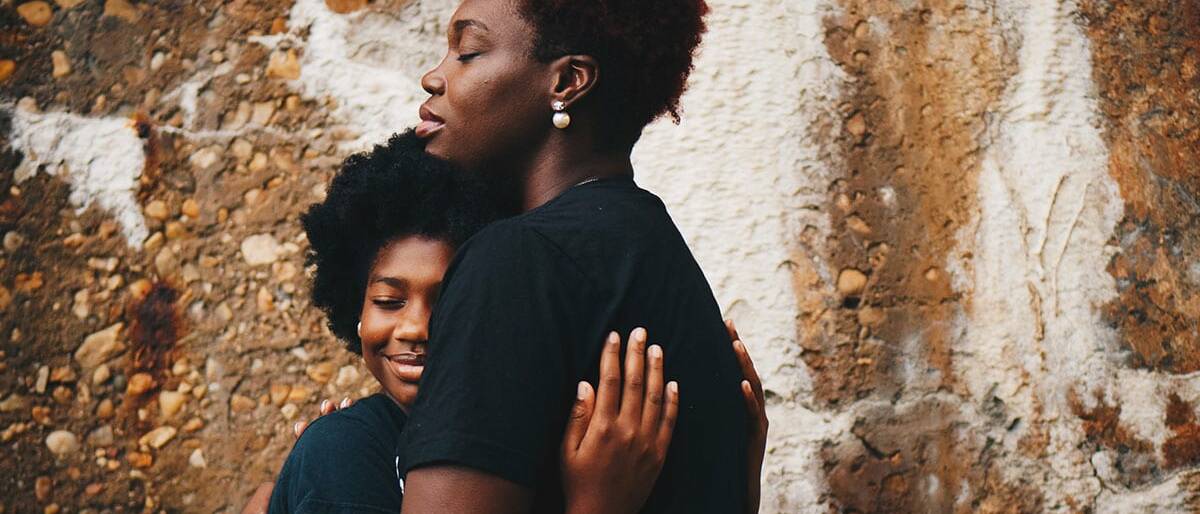
Love has historically played a big role in how we understand the task of treating other people well. Many moral systems hold that love is foundational to doing right.
The Bible, for example, commands us to “love thy neighbour” – not merely to respect or value them, but to love them. Thousands of years later, philosopher and novelist Iris Murdoch wrote that “loving attention” is the core of morality.
In our contemporary understanding of the word, love seems to involve partiality. In all kinds of settings from romantic love to the love in friendship or familial love, loving people seems to mean not loving others. We love our wife, not our neighbours’ wife. We love our friends and our parents, not our boss’ friends or our bus drivers’ father.
In fact, we might think that someone does not love their spouse in any meaningful sense of the word if they also say they love all other people equally – the celebrated essence of love seems to involve choosing some people over others.
This partiality affects our actions as well as our emotions: our parents, friends, and spouses receive more prioritisation, gifts, and emotional attention from us than strangers. This is a celebrated and joyful feature of human life.
Could love in fact be immoral – or amoral? Could behaving lovingly and behaving ethically be two separate tasks – tasks that might sometimes come into conflict?
Morality, has often been thought of as essentially neutral. That is, the moral gaze looks at everyone as equals; not favouring one person over another simply because of our relationship with them. Kantian ethicists, for instance, hold that all people deserve ethical treatment simply because they are persons.
Anyone who is a person deserves to have others not lie to them, disrespect them, enslave their body or seize their property. Thus, the only thing the moral gaze is concerned with is whether someone is a person – and since all people are persons, the moral gaze looks upon all of us equally.
Consequentialist ethics contains a similar commitment to neutrality. For a consequentialist, the moral measure of an action is whether it maximises value. Whose value is maximised has no special claim to our attention; the more value, the better, whether it accrues to my mother or to yours. Since the moral gaze looks to creating the most happiness, it looks at all people equally – as equal vectors of possible happiness.
If morality contains a commitment to neutrality – and if love contains a commitment to partiality – then the moral gaze and the loving gaze might conflict. It might even be the case that love demands acting in ways that morality seems to forbid.
Imagine that you are on a ship which begins to sink. You have held onto the railing but other passengers have not been so lucky, and in the water before you are several strangers struggling to stay afloat. Also in the water, struggling alongside the strangers, is your wife. Are you permitted to throw your wife the one remaining life jacket? Or is her right to life no stronger than any of the strangers’? Love seems to demand that we save our wife, but morality, if it is neutral, seems to offer no automatic reason why we should.
The philosopher Bernard Williams saw a way out of this puzzle. He argued that any person standing on the boat in this situation, who starts thinking about what morality demands, might reasonably be charged with having “one thought too many”. The person should not think “my wife is in the water – what does morality require I do?”. They should simply think “my wife is in the water,” and throw the life jacket.
Williams’ view was that a morally good person is not always thinking about what is morally justifiable. Perhaps, counterintuitively, being a truly ethical person means not always looking through the moral gaze. The question still remains – do love and morality ask us for different things?
Ethics in your inbox.
Get the latest inspiration, intelligence, events & more.
By signing up you agree to our privacy policy
You might be interested in…
Opinion + Analysis
Health + Wellbeing, Relationships
Five stories to read to your kids this Christmas
Big thinker
Relationships
Big Thinker: Jeremy Bentham
Explainer
Relationships
Ethics Explainer: Akrasia
Explainer
Politics + Human Rights, Relationships
Ethics Explainer: Dignity
BY The Ethics Centre
The Ethics Centre is a not-for-profit organisation developing innovative programs, services and experiences, designed to bring ethics to the centre of professional and personal life.
Ethics Explainer: Particularism

When we ask ‘what is it ethical for me to do here?’, ethicists usually start by zooming out.
We look for an overarching framework or set of principles that will produce an answer for our particular problem. For instance, if our ethical dilemma is about eating meat, or telling a white lie, we first think about an overarching claim – “eating meat is bad”, or “telling lies is not permissible”.
Then, we think through what could make that overarching claim true: what exactly is badness? The hope is that we will be able to come up with an independently-justified, holistic view that can spit out a verdict about any particular situation. Thus, our ethical reasoning usually descends from the universal to the particular: badness comes from causing harm, eating meat causes harm, therefore eating meat is bad, therefore I should not eat this meat in front of me.
This methodology has led to the development of many grand unifying ethical systems; frameworks that offer answers to the zoomed-out question “what is it right to do everywhere?”. Some emphasise maximising value; others doing your duty, perfecting your virtue, or acting with love and care. Despite their different answers, all these approaches start from the same question: what is the correct system of ethics?
One striking feature of this mode of ethical enquiry is how little it has agreed on over 4,000 years. Great thinkers have been wondering about ethics for at least as long as they have wondered about mathematics or physics, but unlike mathematicians or natural scientists, ethicists do not count many more principles as ‘solid fact’ now than their counterparts did in Ancient Greece.
Particularists say this shows where ethics has been going wrong. The hunt for the correct system of ethics was doomed before it set out: by the time we ask “what’s the right thing to do everywhere?”, we have already made a mistake.
According to a particularist, the reason we cannot settle which moral system is best is that these grand unifying moral principles simply do not exist.
There is no such thing as a rule or a set of principles that will get the right answer in all situations. What would such an ethical system be – what would it look like; what is its function? So that when choosing between this theory or that theory we could ask ‘how well does it match what we expect of an ethical system?’.
According to the particularist, there is no satisfactory answer. There is therefore no reason to believe that these big, general ethical systems and principles exist. There can only be ethical verdicts that apply to particular situations and sets of contexts: they cannot be unified into a grand system of rules. We should therefore stop expecting our ethical verdicts to have a universal-feeling structure, like “don’t lie, because lying creates more harm than good”.
What should we expect our ethical verdicts to feel like instead? What does particularism say about the moment when we ask ourselves “what should I do?”. The particularist’s answer is mainly methodological.
First, we should start by refining the question so that it becomes more particular to our situation. Instead of asking “should I eat meat?” we ask “should I eat this meat?”. The second thing we should do is look for more information – not by zooming out, but by looking around. That is, we should take in more about our exact situation. What is the history of this moment? Who, specifically, is involved? Is this moment part of a trend, or an isolated incident?
All these factors are relevant, and they are relevant on their own: not because they exemplify some grand principle. “Occasion by occasion, one knows what to do, if one does, not by applying universal principles, but by being a certain kind of person: one who sees situations in a certain distinctive way”, wrote John McDowell.
Particularism, therefore, leaves a great deal up to us. It conceives of being ethical as the task of honing an individual capacity to judge particular situations for their particulars. It does not give us a manual – the only thing it tells us for certain is that we will fail if we try to use one.
Ethics in your inbox.
Get the latest inspiration, intelligence, events & more.
By signing up you agree to our privacy policy
You might be interested in…
Opinion + Analysis
Relationships, Society + Culture
Beyond cynicism: The deeper ethical message of Ted Lasso
Opinion + Analysis
Politics + Human Rights, Relationships
Free markets must beware creeping breakdown in legitimacy
Opinion + Analysis
Relationships
Paralympian pay vs. Olympian pay
Opinion + Analysis
Health + Wellbeing, Relationships
Easter and the humility revolution
BY The Ethics Centre
The Ethics Centre is a not-for-profit organisation developing innovative programs, services and experiences, designed to bring ethics to the centre of professional and personal life.
Thought Experiment: The Last Man on Earth

Thought Experiment: The Last Man on Earth
ExplainerClimate + Environment
BY The Ethics Centre 18 MAY 2021
Imagine for a second that the entire human race has gone extinct, with the exception of one man.
There is no hope for humankind to continue. We know, as a matter of certainty, that when this person dies, so too does the human race.
Got it? Good. Now, imagine that this last person spends their remaining time on Earth as an arbiter of extinction. Being themselves functionally extinct, they make it their purpose to eliminate, painlessly and efficiently, as much life on Earth as possible. Every living thing: animal, plant, microbe is meticulously and painlessly put down when this person finds it.
Intuitively, it seems like this man is doing something wrong. But according to New Zealand philosopher Richard Sylvan (though his argument was published under the name Richard Routley before he took his wife’s name when he married in 1983), traditional ethical theories struggle to articulate exactly why what they’re doing is wrong.
Sylvan, developing this argument in the 1960’s, argues that traditional Western ethics – which at the time consisted largely of variations of utilitarianism and deontology – rested on a single “super-ethic”, which states that people should be able to do what they wish, so long as they don’t harm anyone – or harm themselves irreparably.
A result of this super-ethic is that the dominant Western ethical traditions are “simply inconsistent with an environmental ethic; for according to it nature is the dominion of man and he is free to deal with it as he pleases,” according to Sylvan. And he has a point: traditional formulations of Western ethics have tended to exclude non-human animals (and even some humans) from the sphere of ethical concern.
Traditional formulations of Western ethics have tended to exclude non-human animals (and even some humans) from the sphere of ethical concern.
In fairness, utilitarianism has a better history with considering non-human animals. The founder of the theory, Jeremy Bentham, insisted that since animals can suffer, they deserve moral concern. But even that can’t criticise the actions of our last person, who delivers painless death, free of suffering.
Plus, most versions of utilitarianism focus on the instrumental value of things (basically, their usefulness). Rarely do we consider the fact that when we ask “is it useful?” we’re making an assumption about the user – that they’re human.
Immanuel Kant’s deontology begins with the belief that it is human reason that gives rise to our dignity and autonomy. This means any ethical responsibilities and claims only exist for those who have the right kind of ability: to reason.
Now, some Kantian scholars will argue that we still shouldn’t treat animals or the environment badly because it would make us worse people, ethically speaking. But that’s different to saying that the environment deserves our ethical consideration in its own right. It’s like saying bullying is wrong because it makes you a bad person, instead of saying bullying is wrong because it causes another person to suffer. It’s not all about you!
Sylvan describes this view as “human chauvinism”. Today, it’s usually called “anthropocentrism”, and it’s at the heart of Sylvan’s critique. What kind of a theory can condone the kind of pointless destruction that the Last Man thought experiment describes?
Since Sylvan published, a lot has changed – especially with regard to the animal rights movement. Indeed, Australian philosopher Peter Singer developed his own version of consequentialism precisely so he could address some of the problems the theory had in explaining the moral value of animals. And we can now pretty easily say that modern ethical theories would condemn the wholesale extinction of animal life from the planet, just because humans were gone.
But the questions go deeper than this. American philosopher Mary Anne Warren creates a similar thought experiment. Imagine a lab-grown virus gone wrong, that wipes out all human and animal life. That would be bad. Now, imagine the same virus, but one that wiped out all human, animal and plant life. That would, she thinks, be worse. But why?
What is it that gives plants their ethical status? Do they have intrinsic value – a value in and of themselves, or is their value instrumental – meaning they’re good because they help other things that really matter?
One way to think about this is to imagine a garden on a planet with no sentient life. Is it better, all things considered, for this garden to exist than not? Does it matter if this garden withers and dies?
Or to use a real-life example: who suffered as a result of the destruction of the Jukaan Gorge – a sacred site to the Puutu Kunti Kurrama and Pinikura people? Western thought conceptualises this as wrong to destroy this site because it was sacred to people. But for Indigenous philosophical traditions, the destruction was a harm done to the land itself. The land was murdered. The suffering of people is secondary.
Sylvan and others who call for an ecological ethic, believe the failure for Western ethical thought to conceptualise of murdered land or what is good for plants is an obvious shortcoming.
This is revealed by our intuition that the careless destruction of the Last Man on Earth is wrong, even if we can’t quite say why.
Ethics in your inbox.
Get the latest inspiration, intelligence, events & more.
By signing up you agree to our privacy policy
You might be interested in…
Opinion + Analysis
Climate + Environment, Relationships
“Animal rights should trump human interests” – what’s the debate?
Opinion + Analysis
Climate + Environment, Health + Wellbeing
Donation? More like dump nation
Opinion + Analysis
Climate + Environment, Science + Technology
The kiss of death: energy policies keep killing our PMs
WATCH
Business + Leadership, Climate + Environment, Science + Technology
How to build good technology
BY The Ethics Centre
The Ethics Centre is a not-for-profit organisation developing innovative programs, services and experiences, designed to bring ethics to the centre of professional and personal life.
The role of emotions in ethics according to six big thinkers

The role of emotions in ethics according to six big thinkers
Opinion + AnalysisRelationships
BY The Ethics Centre 16 APR 2021
It’s not easy to provide a clear definition of emotions. Philosophers and psychologists still haven’t agreed on what they are or whether they’re ethically important.
Most of us have lots of emotions and can name a dozen off the top of our heads pretty quickly. But there’s a lot more to understand. Why do they matter? Are we in control of our emotions? Should we prioritise our reason over our emotion?
Let’s take a look at what philosophy has to say.
Plato: reason rules emotion
For Ancient Greek philosopher Plato, emotion was a core part of our mind. But although it was core, he didn’t think emotions were very useful. He suggested we imagine our mind like a chariot with two horses. One horse is noble and cooperative, the other is wild and uncontrollable.
Plato thought the chariot rider was our reason and the two horses were different kinds of emotions. The noble horse represents our ‘moral emotions’ like righteous anger or empathy. The cranky horse represents more basic passions like rage, lust and hunger. Plato’s ideas set the precedent for Western philosophy in placing reason above and in control of our emotions.
Aristotle: what you feel says something about you
Aristotle had similar ideas and believed the wise, virtuous person would feel the right emotions at the right times. They would be depressed by sad things and angered by injustice. He also believed this appropriate kind of feeling was an important measure of whether you were a good person. He didn’t think you could separate the kind of person you were from the way you felt.
So if you find it funny when someone slips over in a puddle, Aristotle would argue that says something about you. It doesn’t matter whether you then offer them a towel or ask if they’re okay. The amusement you felt in response to their suffering reflects your character. He thought your job is to work hard so instead of laughing at such situations, you feel empathy and concern.
Hume: emotion rules reason
Scottish philosopher David Hume thought this view was naive. He famously said reason is “the slave of the passions”. By this he meant our emotions lead our reason – we never choose to do anything because reason tells us to. We do it because an emotion pushes us to act. For Hume, reason isn’t the charioteer driving our emotions, it’s more like the wagon being pulled along with no control over where it’s headed. It’s the horses – our emotions – calling the shots.
Hume and his friend Adam Smith developed a theory of moral sentiments that used emotion as the basis for their ethical theory. For them, we act virtuously not because our reason tells us it’s the right thing to do, but because doing the right thing feels good. We get a kind of ‘moral pleasure’ from acting well.
Kant: emotion strips our agency
Immanuel Kant thought this whole approach was entirely wrongheaded. He believed emotion had no place in our ethical thinking. For Kant, emotions were pathological – a disease on our thinking. Because we have no control over our emotions, Kant thought allowing them to govern our thinking and action made us ‘automated’, and that it is the only reason that made us autonomous and capable of making truly free decisions.
Freud: our unconscious drives us
More recent ideas have questioned whether there is such a thing as ‘pure reason’ (a concept Kant named one of his books after). Psychoanalysts like Sigmund Freud encouraged us to see our motivations as driven by unconscious urges and inclinations. More recent work in neuroscience has revealed the role unconscious bias and heuristics play in our beliefs, thinking and decisions.
This might make us wonder whether the idea that reason and emotion are two separate, rival forces is accurate. Another mode of thinking suggests our emotions are part of our reason. They express our judgements about how the world is and how we’d like it to be. Are we passive victims of our emotions? Do we spontaneously ‘explode’ with anger? Or is it something we choose? Our answer will help us determine how we feel about things like ‘crimes of passions’, impulsive decisions and how responsible we are for the feelings of other people.
Carol Gilligan: What is this sexist nonsense?
You may have noticed that all the names on this list so far are men. For psychologist Carol Gilligan, that’s not a coincidence. In her influential work In a Different Voice: Psychological Theory and Women’s Development, Gilligan argued that the widespread suspicion of ethical decisions made on the basis of emotion, concern for other people and a desire to maintain relationships was sexist. Most theorists had argued that reason, not emotion, should drive our decisions. Gilligan pointed out that most of the ‘bad’ ways of making decisions (like showing care for certain people or using emotion as a guide) tended to be the ways women reasoned about moral problems. Instead, she argued that a tendency to pay mind to emotions, value care and connection and prioritise relationships were different modes of moral reasoning; not suboptimal ones.
For a long time, reason and emotion have been pitted against one another. Today, we’re starting to understand that, in many ways, emotions and reason are the same. Our emotions are judgements about the world. Our reasoning is informed by our mood, our environment and a range of other factors. Perhaps the question shouldn’t be “should we listen to our emotions?” but instead “how do we develop the right emotional responses at the right time?” That way, we can rely on our emotions as one of many pieces of information we can use to make better decisions.
Follow The Ethics Centre on Twitter, Facebook, Instagram and LinkedIn.
Ethics in your inbox.
Get the latest inspiration, intelligence, events & more.
By signing up you agree to our privacy policy
You might be interested in…
Opinion + Analysis
Health + Wellbeing, Relationships
Want to live more ethically? Try these life hacks
Opinion + Analysis
Relationships, Society + Culture
FODI launches free interactive digital series
Opinion + Analysis
Relationships, Climate + Environment
Blindness and seeing
Opinion + Analysis
Relationships
From capitalism to communism, explained
BY The Ethics Centre
The Ethics Centre is a not-for-profit organisation developing innovative programs, services and experiences, designed to bring ethics to the centre of professional and personal life.
Big Thinker: Immanuel Kant

Immanuel Kant (1724—1804) was a transformative figure in modern Western philosophy due to his ground-breaking work in metaphysics and ethics.
He was one of the most influential philosophers of the 18th century, and his work in metaphysics and ethics have had a lasting impact to this day.
One of Kant’s greatest contributions to philosophy was his moral theory, deontology, which judges actions according to whether they adhere to a valid rule rather than the outcome of the action.
According to Kant’s theory, if you follow a valid moral rule, like “do not lie”, and it ends up with people getting harmed, then you’ve still done the right thing.
Deontology has since become one of the “big three” moral frameworks in the Western tradition, along with virtue ethics (based on Aristotle’s work) and consequentialism (exemplified by utilitarianism).
The will
Kant argued that morality cannot be based on our emotions or experience of the world, because this would leave it weak and subjective, and lacking the unconditional obligation that he believed was central to moral law.
“Every one must admit that a law has to carry with it absolute necessity if it is to be valid morally – valid, that is, as a ground of obligation,” he wrote.
His concern was that without this sense of unconditional obligation, a moral rule like ‘do not lie’ could compete with and be overridden by other concerns, like someone deciding they could lie because it suits their interests to do so, and they value their interests more than morality.
Rather, Kant argued that morality must be based on reason, which alone can provide the unconditional necessity that makes morality override our subjective interests.
Kant’s starting point was with our very nature, as inherently rational beings with ‘free will.’ He argued that it was this will that sets us apart as ’persons’ rather than ’things’ in the world, which are at the mercy of causal forces.
Our will gives us the ability to not only decide how to achieve our ends, but also about which ends to pursue; that’s just what freedom means. However, Kant argued that when we understand our nature as rational beings, we will understand that reason commands us to behave in a certain way, and this could form the basis of objective moral law.
The Categorical Imperative
Kant drew a famous distinction between different types of commands, or imperatives, which direct us how to act. One type are hypothetical imperatives.
So, one hypothetical imperative might say if you want to get to the 5:05 PM bus on time, then you must leave home no later than 5 p.m. Many moral systems of his time were effectively based on hypothetical imperatives, with the ends being things like achieving happiness or satisfying our interests.
However, Kant believed that such hypothetical imperatives could not be the basis of morality, as morality must bind us to act unconditionally and irrespective of any other ends we might have. Hence, someone who followed hypothetical imperatives in order to achieve ends like satisfying their desires or to avoid punishment was not acting morally.
He contrasted these with categorical imperatives do bind us unconditionally, no matter what other ends we might have. Kant argued that morality must be made up of categorical imperatives, as these are the only rules that can give morality its unconditional necessity.
“If duty is a concept which is to have meaning and real legislative authority for our actions, this can be expressed only in categorical imperatives and by no means in hypothetical ones,” he wrote.
The question becomes: where do categorical imperatives come from? Kant argued that there is really only one categorical imperative, and it is derived from our very nature as rational agents.
Once we abstract away all the contingent circumstances and subjective desires that people have, all we’re left with is our rational nature, which is something shared by all persons with a will. This objective point of view, stripped of all subjectivity, treats all rational agents equally, thus any imperative that directs them must apply universally.
From this Kant arrived at the categorical imperative, which is usually stated as “act only according to a maxim by which you can at the same time will that it shall become a general law”. This made all moral commands universal, so if something was wrong for me, then it must be wrong for all rational beings at all times.
This categorical imperative became the basis of all of Kant’s moral laws, effectively enshrining a particularly rarefied version of the Golden Rule.
Kingdom of Ends
Because we are inherently rational agents, we are both the authors and the subjects of the moral law. As such, Kant said that every person – indeed, every rational being – is an “end in himself, not merely as a means for arbitrary use by this or that will”.
This means we must treat all rational beings as ends in themselves and not just as means to achieve whatever ends we might have.
So, Kant argued, if every rational agent were to obey the categorical imperative, and treat everyone else as ends and not means, then it would lead to what he called the “kingdom of ends.”
It’s a kingdom in the sense that it’s a union of individuals who are all acting under a common law, and in this case the law is the categorical imperative, which urges everyone to treat everyone else as an end in themselves.
Kant admitted that this would be something of a moral utopia, but he put it forward as a vision for what a truly rational moral society might look like.
Controversy and Influence
Kant’s deontological ethics has been hugely influential but also controversial, being criticised by many philosophers as being based on an unrealistic conception of human rationality as well as being overly inflexible.
For example, Kant argued that it was always wrong to lie, because if one were to lie it would effectively endorse lying for everyone, and this would violate people’s rational autonomy.
However, we can imagine some situations where lying might be considered to be the right thing to do, such as lying to a prospective murderer in order to conceal their potential victims. Not to mention lying to one’s partner about their sartorial choices in order to maintain a harmonious domestic environment.
This is why many ethical consequentialists, who believe that it’s outcomes that really matter, have been known to gnash their teeth at the prospect that Kant demands we never lie.
Some thinkers have also – perhaps uncharitably – said that Kant effectively remade a kind of divine command theory of morality, which was popular in his Lutheran Christian community, except he replaced God with Reason (and even then, snuck a bit of God in on the side).
Kant’s philosophy has proven to be tremendously influential. His synthesis of empiricism and rationalism proved to be a breakthrough at the time, and his moral theory still has ardent defenders to this day.
Ethics in your inbox.
Get the latest inspiration, intelligence, events & more.
By signing up you agree to our privacy policy
You might be interested in…
Explainer
Relationships
Ethics Explainer: Conscience
Opinion + Analysis
Relationships
Israel Folau: appeals to conscience cut both ways
Explainer
Relationships
Ethics Explainer: Conservatism
Opinion + Analysis
Business + Leadership, Relationships
Facing tough decisions around redundancies? Here are some things to consider
BY The Ethics Centre
The Ethics Centre is a not-for-profit organisation developing innovative programs, services and experiences, designed to bring ethics to the centre of professional and personal life.
How avoiding shadow values can help change your organisational culture

How avoiding shadow values can help change your organisational culture
Opinion + AnalysisBusiness + Leadership
BY John Neil Michelle Bloom The Ethics Centre 15 MAR 2021
Governing culture is a board’s most challenging task. John Neil and Michelle Bloom of The Ethics Centre outline the dangers of “shadow values”. Here’s how to walk the talk.
This article was first published in the March 2021 edition of Company Director magazine for the Australian Institute of Company Directors.
While an organisation might be measured by its share price, profitability or reputation, it is defined by its culture. Culture matters because it influences everything an organisation does. It defines not only individual and team performance, it also influences how organisations manage, change and navigate complexity and uncertainty. While it is critical to an organisation’s performance and reputation, culture is notoriously difficult to identify, measure and evaluate. As a result, understanding and governing culture is a perennial challenge for boards. This is because it is comprised of implicit and explicit dimensions. It includes the shared values, principles and beliefs of people, how they work together and with each other. Many of these dimensions are visible, but many are not.
On the face of it, corporate values of excellence, respect, integrity and communication are admirable and worthy. Most organisations would be happy to identify with them. But Enron espoused these values only 12 months before declaring bankruptcy in 2001 — the largest in US history. The company had received plaudits for its 64-page code of ethics and Fortune magazine named it “America’s Most Innovative Company”. It had received numerous awards for its corporate citizenship and environmental policies.
Enron’s failings have been well documented as the prototypical case study of what can happen when an organisation decouples values from its behaviours. Less well-documented is how the implicit and unstated dimensions of an organisation’s culture shape and influence for better or worse. These aspects of culture determine what and how things get done in organisations and are driven by the implicit values/principles people hold.
“The biggest challenge for boards in governing culture is that while unspoken dimensions are difficult, but not impossible, to identify and measure, they are more powerful than the official ones because they operate below the surface.” – John Neil, The Ethics Centre
The dark side
The biggest challenge for boards in governing culture is that while unspoken dimensions are difficult, but not impossible, to identify and measure, they are more powerful than official ones because they operate below the surface. They are key to changing an organisation’s culture because they more closely reflect its actual operating culture — its “shadow” values and principles. In psychology, the alter ego is the dark side of human nature. Jung identified it as the “shadow” to describe the subterranean aspects of the psyche; those unpleasant traits we prefer to hide. As in the psyche, the shadow gains its power in an organisation by being repressed and unacknowledged, which manifests in unintended, often detrimental behaviours.
Shadow values are typically cultivated in environments where organisations are stressed by the complexity of changes occurring or a lack of focus on supporting cultural alignment with existing values and principles.
In our work with a financial services company, our evaluation revealed each of its official organisational values had powerful corollaries (shadow values) that served to shift the organisation off course significantly. One of these official values was excellence. While officially expressed in a tagline, it was experienced and evaluated in ways such as “having pride in our work”, “being willing to challenge”, and “continuous improvement”. We also found it manifested itself through a powerful shadow side driven by the unstated value of success — in behaviours such as “individualistic”, “maintain status”, and “hit targets at all cost”.
The key driver of this shadow value was an unwavering focus on “the numbers”. While the measurement of inputs, and outcomes was regarded as a management responsibility, in this individualistically success-oriented culture, hard metrics such as hitting the numbers came to serve as the sole measure of success. Individual behaviours became distorted in pursuit of that goal alone, obscuring non-financial costs and risks, which, when not easily calculable are not seen, let alone prioritised. Unintended consequences of not being aware of or managing shadow values were highlighted in the Banking Royal Commission.
Alternate shadows
The connotations of “shadow” overstate the negative effect of these values. While an organisation’s shadow values at their worst are less constructive mutations of the official ones and will always benefit from being exposed and dealt with, there are two other types, both potentially of great value for an organisation to identify and unlock.
The first is neutral in relation to the existing values/principles but offers significant potential for tipping into positive or negative manifestations. In our work with the Australian Olympic Committee (AOC), its value of excellence — with associated behaviours and traits of exemplary performance and achievement by elite Olympic athletes — was undermined by a powerful shadow cast by the implicit value of pragmatism.
The second type of alternate shadow values reinforce, amplify or supplement official values and principles. These were also present at the AOC (see breakout, right).
In our work with a large superannuation fund, a primary shadow value was that of harmony, operating below the stated value of excellence. The value of excellence was commonly expressed in behaviours such as “keeping costs low”, “continuous improvement” and “leading the industry”. The shadow value of harmony in its most positive expression meant people were respected and included. At its worst, it manifested in the avoidance of conflict, resulting in over-consultation, delaying and avoiding difficult decisions. As a result, excellence was hamstrung by a lack of agility and responsiveness to the changing environment and competitive pressures, with innovative ideas often deferred until unreasonably high standards of mitigation were in place.
Getting below the surface
Particularly for boards wanting a “true read” of a culture, a challenge is getting below the surface-level reporting facade. Because of its intangible nature, culture is not easily distilled into standard metrics. Complaints, grievance resolution time, staff turnover and engagement surveys provide a limited view of the dynamics underpinning the culture — but often, they are the board’s only sources of information. While they may identify a range of proxies for an explicit culture, they are of little use in identifying implicit beliefs, attitudes and behaviours that actually drive the operating culture.
A significant limitation is a reliance on self-reporting. One organisation we worked with displayed a widespread cultural practice in staff surveys and performance reviews. “Click five to stay alive” referred to the five-point Likert scales used to evaluate a leader’s performance — and to an expectation for subordinates to rate leaders as a “five” across all evaluation criteria to avoid recriminations. Not only did these reports give an inaccurate evaluation of performance, they also underlined a range of potential shadow values linked to inappropriate use of positional power, fear of reprisals and lack of trust.
Unless board members are particularly proactive through direct engagement with staff, having visibility of the actual operating culture beyond what management reports provide is difficult. While there is no substitute for direct engagement — in particular with how the executive team works — using tools that better uncover shadow values can help boards better see the risks and opportunities below the surface — and thereby govern more effectively.
John Neil is Director of Innovation and Michelle Bloom Director of Consulting and Leadership at The Ethics Centre. They offer Shadow Value Assessments, working directly with organisations to identify and remedy the alignment gap between the official values and the lived culture and behaviours. Find out more.
Case study: Australian Olympic Committee
Pragmatism was held in high regard as a leadership trait in the AOC. This infiltrated into ways of working and modes of governance. When the organisation shifted into “games mode” where pressures on effective delivery were intense, pragmatism exercised its greatest influence. At times, the ends justified the means, with governance standards, and operating processes temporarily suspended to expedite results. But organisational challenges compounded over time. When the AOC switched back into “non-delivery mode”, it was difficult to recalibrate around its official values, principles and sanctioned ways of working.
In our work with the AOC, we also found shadow values that reinforced the official values. There was a consistently understood and practically used principle of “athletes first”, which reinforced and amplified each of the official values, in particular that of excellence. While not recognised as an official value or principle, it influenced many desirable behaviours, judgements and decisions directly in service of the needs of athletes. In other organisations it may have been expressed as an official value of “service” or a principle such as “act in the client’s best interest”. But as a shadow principle, it was no less effective than these stated principles. It was commonly applied as a rule of thumb to many decisions made throughout the organisation — and most people defaulted to it.
Seven Female Philosophers You Should Know About

Seven Female Philosophers You Should Know About
Big thinkerRelationships
BY The Ethics Centre 8 MAR 2021
There’s no question that philosophy is littered with the workings of male minds. What’s less known are the many brilliant women whose contributions throughout history have shaped our world today. Here are seven female philosophers to celebrate this International Women’s Day.

Mary Wollstonecraft
Mary Wollstonecraft (1759-1797) was a writer, philosopher and social activist. Wollstonecraft’s manifesto is 225+ years old, but far from obsolete. She passionately articulated for women to have equal rights to men in A Vindication of the Rights of Woman in 1792, a century before the term feminism was coined. In a social system where women were “kept in ignorance” by the socioeconomic necessity of marriage and a lack of formal education, Wollstonecraft advocated for a free national schooling system where girls and boys would be taught together. The word patriarchy was not available to Wollstonecraft, yet she argued men were invested in maintaining a society where they held power and excluded women.
“My own sex, I hope, will excuse me, if I treat them like rational creatures, instead of flattering their fascinating graces, and viewing them as if they were in a state of perpetual childhood, unable to stand alone.”
bell hooks
An outspoken professor, author, activist and cultural critic, bell hooks (1952 – 2021) work explores the connections between race, gender, and class. “Ain’t I A Woman” laid the groundwork for hooks progressive feminist theory, linking historical evidence of the sexism endured by black female slaves to its long-standing legacy on black women today. Born Gloria Watkins, hooks adopted her pen name after her late grandmother, wanting it written in lower case to shift the attention from her identity to her ideas. Now 38 years on from its original publication, her work remains radically relevant to the world today.
“A devaluation of black womanhood occurred as a result of the sexual exploitation of black women during slavery that has not altered in the course of hundreds of years.”
Simone De Beauvoir
Simone de Beauvoir (1908-1986) was a French author, feminist and existential philosopher. She lived an unconventional life as a working experiment of her ideas. As an existentialist, de Beauvoir believed in living authentically and argued that people must choose for themselves who they want to be and how they want to live. The more pressure society – and other people – place on you, the harder it is to make that authentic choice, particularly for women. In her best-known work, ‘The Second Sex’ she famously posed that women are not born, they are made. Meaning that there is no essential definition of womanhood, rather social norms work hard to force them into a notion of femininity
“Man is defined as a human being and woman as a female – whenever she behaves as a human being she is said to imitate the male.”

Shulamith Firestone
Shulamith Firestone (1945-2012) was a writer, artist, and feminist whose book, The Dialectic of Sex, argued the structure of the biological family was primarily to blame for the oppression of women. Firestone proposed that over the course of human history, society itself had come to mirror the structure of the biological family and was the source from which all other inequalities developed. With a radical and uncompromising vision, she advocated for the development of reproductive technologies that would free women from the responsibilities of childrearing, dismantle the hierarchy of family life and set the foundations for a truly egalitarian society.
“the end goal of feminist revolution must be… not just the elimination of male privilege, but of the sex distinction itself.”

Hannah Arendt
Johannah “Hannah” Arendt (1906 – 1975) was a German Jewish political philosopher who left life under the Nazi regime for nearby European countries before settling in the United States. Informed by the two world wars she lived through, her reflections on totalitarianism, evil, and labour have been influential for decades. Arendt’s most well-known idea is “the banality of evil”, explored in 1963 in a piece for The New Yorker that covered the trial of a Nazi bureaucrat, Adolf Eichmann. Following the election of Donald Trump, sales of Arendt’s book The Origins of Totalitarianism, already one of the most important works of the 20th century, increased by 1600%.
“The sad truth is that most evil is done by people who never make up their minds to be good or evil.”
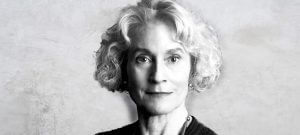
Martha Nussbaum
Martha Nussbaum (1947-present) is one of the world’s most influential living moral philosophers, trailblazing in her philosophical advocacy for religious tolerance, feminism and the merits of emotions. Nussbaum believes the ethical life is about vulnerability and embracing uncertainty. She famously argued for the place of emotions within politics, saying democracy simply doesn’t work without love and compassion. In ‘Not for Profit: Why Democracy Needs the Humanities’ Nussbaum took on the education system, proposing that its role is not to produce an economically productive and useful citizen, but people who are imaginative, emotionally intelligent and compassionate.
“To be a good human being is to have a kind of openness to the world, an ability to trust uncertain things beyond your own control.”

Simone Weil
Simone Weil (1909–1943) was a Philosopher, Christian mystic and political activist in the French Resistance, who TS Eliot called a “genius akin to that of the saints”. Weil gave attention to working conditions and is known to have given up a life of privileged to work in factories. This experience shaped her writings, which consider the relationship between individual and state, the nature of knowledge, the spiritual shortcomings of industrialism and suffering as key to the human condition. In The Need for Roots, Weil argued that society suffered an ‘uprootedness’, a deep malaise in the human condition due to a lack of connectedness to past, land, community and spirituality.
“To be rooted is perhaps the most important and least recognized need of the human soul.”
Ethics in your inbox.
Get the latest inspiration, intelligence, events & more.
By signing up you agree to our privacy policy
You might be interested in…
Opinion + Analysis
Relationships, Society + Culture
I’m really annoyed right now: ‘Beef’ and the uses of anger
Opinion + Analysis
Relationships, Society + Culture
Five dangerous ideas to ponder over the break
Opinion + Analysis
Relationships, Society + Culture
I’d like to talk to you: ‘The Rehearsal’ and the impossibility of planning for the right thing
Big thinker
Relationships
Big Thinker: Jeremy Bentham
BY The Ethics Centre
The Ethics Centre is a not-for-profit organisation developing innovative programs, services and experiences, designed to bring ethics to the centre of professional and personal life.
Tim Soutphommasane on free speech, nationalism and civil society

Tim Soutphommasane on free speech, nationalism and civil society
Opinion + AnalysisBusiness + LeadershipPolitics + Human RightsRelationships
BY The Ethics Centre 18 FEB 2021
We believe conversations matter. So when we had the opportunity to chat with Tim Soutphommasane we leapt at the chance to explore his ideas of a civil society. Tim is an academic, political theorist and human rights activist. A former public servant, he was Australia’s Race Discrimination Commissioner at the Australian Human Rights Commission from 2013 – 2018 and has been a guest speaker at the Festival of Dangerous Ideas. Now a professor at Sydney University, he shared with The Ethics Centre his thoughts on the role of the media, free speech, racism and national values.
What role should the media play in supporting a civil society?
The media is one place where our common life as a society comes into being. It helps project to us our common identity and traditions. But ideally media should permit multiple voices, rather than amplify only the voices of the powerful. When it is dominated by certain interests, it can destroy rather than empower civil society.
How should a civil society reckon with the historical injustices it benefits from today?
A mature society should be able to make sense of history, without resorting to distortion. Yet all societies are built on myths and traditions, so it’s not easy to achieve a reckoning with historical injustice. But, ultimately, a mature society should be able to take pride in its achievements and be critical of its failings – all while understanding it may be the beneficiary of past misdeeds, and that it may need to make amends in some way.
Should a civil society protect some level of intolerance or bigotry?
It’s important that society has the freedom to debate ideas, and to challenge received wisdom. But no freedom is ever absolute. We should be able to hold bigotry and intolerance to account when it does harm, including when it harms the ability of fellow citizens to exercise their individual freedoms.
What do you think we can do to prevent society from becoming a ‘tyranny of the majority’?
We need to ensure that we have more diverse voices represented in our institutions – whether it’s politics, government, business or media.
What is the right balance between free speech and censorship in a civil society?
Rights will always need to be balanced. We should be careful, though, to distinguish between censorship and holding others to account for harm. Too often, when people call out harmful speech, it can quickly be labelled censorship. In a society that values freedom, we naturally have an instinctive aversion to censorship.
How can a society support more constructive disagreement?
Through practice. We get better at everything through practice. Today, though, we seem to have less space or time to have constructive or civil disagreements.
What is one value you consider to be an ‘Australian value’?
Equality, or egalitarianism. As with any value, it’s contested. But it continues to resonate with many Australians.
Do you believe there’s a ‘grand narrative’ that Australians share?
I think a national identity and culture helps to provide meaning to civic values. What democracy means in Australia, for instance, will be different to what it means in Germany or the United States. There are nuances that bear the imprint of history. At the same time, a national identity and culture will never be frozen in time and will itself be the subject of contest.
And finally, what’s the one thing you’d encourage everyone to commit to in 2021?
Talk to strangers more.
To read more from Tim on civil society, check out his latest article here.
Tim Soutphommasane is a political theorist and Professor in the School of Social and Political Sciences, The University of Sydney, where he is also Director, Culture Strategy. From 2013 to 2018 he was Race Discrimination Commissioner at the Australian Human Rights Commission. He is the author of five books, including The Virtuous Citizen (2012) and most recently, On Hate (2019).
This project is supported by the Copyright Agency’s Cultural Fund.
![]()
Ethics in your inbox.
Get the latest inspiration, intelligence, events & more.
By signing up you agree to our privacy policy
You might be interested in…
Opinion + Analysis
Business + Leadership
Leading ethically in a crisis
Opinion + Analysis
Health + Wellbeing, Politics + Human Rights
Vaccines: compulsory or conditional?
Opinion + Analysis
Politics + Human Rights, Relationships
Adoption without parental consent: kidnapping or putting children first?
Opinion + Analysis
Relationships
Get mad and get calm: the paradox of happiness
Join our newsletter
















